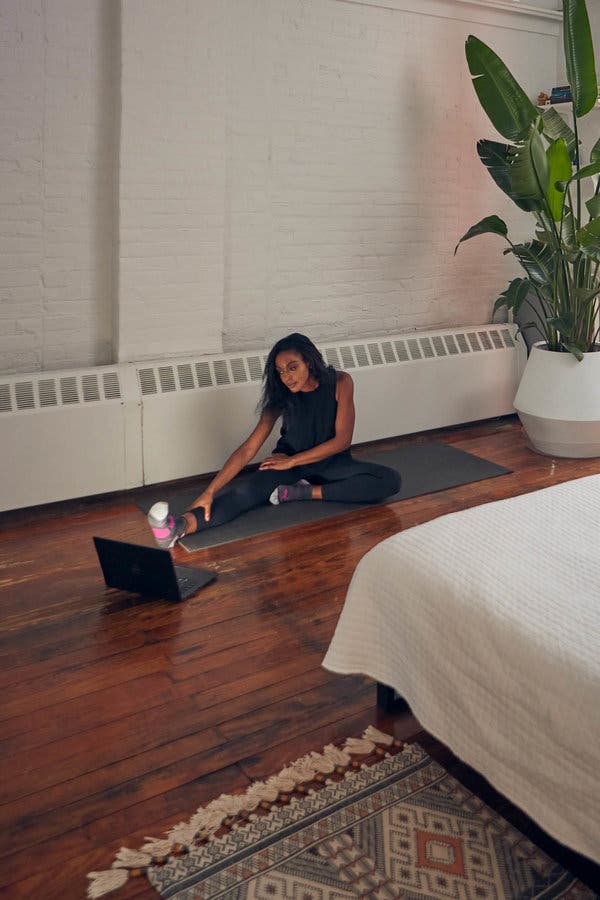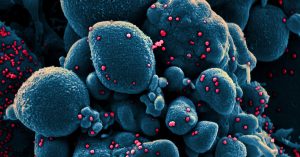Kimberly Jocelyn is a contract tracing supervisor with New York City Health and Hospitals Test & Trace Corps, which has, since May, employed more than 3,000 researchers, callers and field workers in an attempt to stop the spread of Covid-19.
Earlier this year, Ms. Jocelyn, 29 and a recent graduate of Columbia University’s School of Public Health, worked at the CDC Quarantine Station at Kennedy International Airport.
Now she is working from her home in Prospect Heights, Brooklyn, where she leads a team of 15 contact tracers. Most Sundays she is on the job, but she doesn’t mind.
“I am incredibly passionate about health equity, addressing health disparities and saving lives,” she said. “The work we’re doing is crucial.”
SELF-CARE I’m up every morning at 6 or 6:30. I’ll work out a little bit, make breakfast and sometimes journal. And I always look for something to make me laugh. Usually it’s memes or GIFs my friends have sent overnight.
DIVISION OF DUTIES At 6:50, I start checking emails and getting ready for the workday. Right now, I’m overseeing a team of information gatherers, which is one of the roles for contact tracers. Information gatherers conduct research so case investigators can reach out to contacts of Covid patients.
A few weeks ago, I was supervising case investigators, the people who notify patients about positive test results. There are also contact tracers who go out into the field to connect with and to further engage confirmed cases.
PRECIOUS CARGO Any emails I send have to be joyous and send great energy, because my team needs to feel supported. Before I email, I’ll analyze any trends I can find on the virus to keep them updated. The scripts on this virus are changing almost every day. They need the most up-to-date information I can get them.
BACKUP Before I started working as a supervisor, I was trained to conduct interviews with patients. Having the opportunity to conduct calls myself was a great experience, because if any difficult questions come up while one of my team is on the phone, I can usually provide guidance.
Say a case investigator informs an individual they’ve tested positive, and it’s a shock to that person. Not knowing who it is they may have come in close proximity with comes with various emotions. We have to maintain strict confidentiality, and we have to provide a supportive, respectful, trusting environment to process those emotions. Sometimes that involves a moment of silence.
TRANSPARENCY ON BOTH SIDES All our calls are recorded. They last about 20 minutes. Throughout the calls, we inform people who we are, and that the call is not to cause any more stress. Our goal is to provide information about Covid-19 and to let them know about the resources we can provide. We also want to obtain information about who they’ve been in contact with so we can stop the spread. It’s extremely important to be patient and compassionate. Allowing cases to vent is important, too, so that they feel they’re in a safe environment and can be transparent with us.
FRESH AIR I am proud of and love the work that I do. However, this work is hard because of the communal sense of loss, grief, and trauma, and it’s essential for me to be self-aware and attend to my own needs and mental health. I don’t necessarily have a set time for breaks, but I do take them. It’s important to go outside, get some fresh air. When I’m outside with the sun on my skin it changes my mood. Especially after sitting at the computer. I’ll take some water and a snack.
THE TOUGH PART It’s not easy telling someone they’ve tested positive for Covid-19, especially if they were not aware or informed of their test results before receiving a call from the NYC Health and Hospitals Test and Trace Corps. I have not experienced getting yelled at or hung up on. However, I have been on calls where cases disclosed feeling confused and distressed. It’s important not to take difficult calls personally, because the case may have experienced trauma before and during the pandemic. With challenging calls, I inform supervisees of the importance of being genuine and meeting the cases where they are.
SIGN OFF At 5 or 6, I have to pull myself away from my desk. It doesn’t even feel like work, because I’m in such a great, collaborative work space. I know we’re making a direct impact within the community, and I also believe we’re addressing health disparities. I think it’s incredible.
FRIENDS ON SCREENS In the evening, I stretch, I cook, I check in with loved ones. I read the news or I’ll read for pleasure. The last book I read was Michelle Obama’s “Becoming.” I’m thinking about what she’s saying and how I can potentially apply it to what’s happening in my own life. And I’m always on a video call. Sometimes if I want to have a sleepover, I’ll fall asleep on FaceTime. I like having another person with me, even if it’s not physically.
Sunday Routine readers can follow Kimberly Jocelyn on Twitter @kimberly_joc.



















